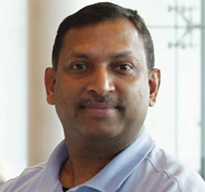Geomechanics for Conventional and Unconventional Resources
Disciplines: Completions | Drilling | Production and Operations | Reservoir
Course Description
Geomechanics is playing an increasingly important role in developing conventional and unconventional resources (Coal Seam Gas and Shale Gas). This course will help you understand the fundamentals of geomechanics and its applications to conventional and unconventional reservoirs (CSG and Shale Gas) which will enable better field development decisions. You will learn the essential data required to construct a 1D MEM (1 Dimensional Mechanical Earth Model), Rock Testing planning for a geomechanics study, calibration of the model and application to drilling, sanding and hydraulic fracturing in conventional and unconventional reservoirs. You will also learn about data requirement and workflow for constructing a 3D MEM and its applications with case studies.
Daily Activities Agenda (pdf)
Learning Level
Intermediate
Course Length
1 Day
Why Attend
This one day short course is intended to cover the fundamentals of geomechanics and its applications in conventional and unconventional resources (Coal Seam Gas and Shale Gas). This course is designed to provide an awareness to those interested in learning what is geomechanics, data requirement for a geomechanics study, the components of a geomechanical model, how to construct a calibrated 1D Mechanical Earth Model (1D MEM) and 3D MEM and its applications to conventional and unconventional resources (wellbore stability, sanding, hydraulic fracturing and completion integrity).
Who Attends
Engineers, Geoscientists, Technical Managers and Engineering Technologists who are interested in learning fundamentals of geomechanics and its application to conventional and unconventional resources (Coal Seam Gas and Shale Gas)
CEUs
Engineers are responsible for enhancing their professional competence throughout their careers. Licensed, chartered, and/or certified engineers are sometimes required by government entities to provide proof of continued professional development and training. Training credits are defined as Continuing Education Units (CEUs) or Professional Development Hours (PDH).
Attendees of SPE training courses earn 0.8 CEUs for each day of training. We provide each attendee a certificate upon completion of the training course.Additional Resources
This course has a supplemental book located in our SPE Bookstore entitled Unconventional Gas and Tight Oil Exploitation. Please check out this valuable resource!
Cancellation Policy
All cancellations must be received no later than 14 days prior to the course start date. Cancellations made after the 14-day window will not be refunded. Refunds will not be given due to no show situations.
Training sessions attached to SPE conferences and workshops follow the cancellation policies stated on the event information page. Please check that page for specific cancellation information.
SPE reserves the right to cancel or re-schedule courses at will. Notification of changes will be made as quickly as possible; please keep this in mind when arranging travel, as SPE is not responsible for any fees charged for cancelling or changing travel arrangements.
We reserve the right to substitute course instructors as necessary.
Instructor

Zachariah John Pallikathekathil (Zach John) is the team leader for the Geomechanics and Acoustics group for Schlumberger Australasia. He has more than 30 years’ experience in the oil and gas industry with 11 years in petroleum geomechanics. He graduated in mechanical engineering from IIT-Delhi with distinction and took electives from the school of oil & gas UWA masters program. He has held technical & management positions in Wireline, PTS and SIS services segments of Schlumberger in many countries before moving on as Petrophysics and LWD domain champion supporting Wireline and LWD interpretation. His passion for geomechanics and its multi-disciplinary requirement drew him into the field of geomechanics 11 years ago. He is involved in rock testing design, construction of 1D Mechanical Earth Model and 3D numerical model for addressing issues on wellbore stability, sanding and for hydro frac over the life of the field. He has been involved with many conventional and unconventional CSG and Shale gas geomechanics projects in Australia and presented at both SPE and FESAus (Formation Evaluation Society of Australia) forums. He is an active member of FESAus and was its past president. In his free time he enjoys gardening, vermiculture, cycling, soccer and serving at his church.
He is the recipient of several awards including the Gulf Coast SPE Drilling Engineering Award, SPE International Drilling Engineering Award, SPE Distinguished Membership Award and the Distinguished Lecturer award from the Society of Petroleum Engineers.
